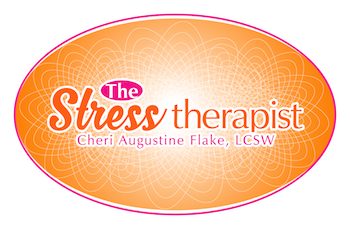Hello, my lovely New Year’s Resolutionists!
If you know me, you know I’m not the biggest fan of New Year’s Resolutions…well, at least, how they traditionally work…Why, you ask?
Three reasons!
1. Resolutions Start at the Goal
New Year’s Resolutions often have you starting at your goal rather than working toward your goal. “I’m going to start eating healthy on January 1st” leaves no room for gradual change and therefore, means a lower success rate.
Believe me, if I could, I would eat all of my meals for the whole year in one day. One big trip to Publix and whole day of pig out and I just saved time, money and hassle! But your body won’t allow it…it needs food little by little. And that’s how your brain is; it’s a part of your body, remember? It almost always needs change little by little if you want to implement new, long-term behavior.
Interesting that I never hear resolutionists who want to learn how to play the guitar say that starting January 1st, they are going to play Jimi Hendrix licks. Why is it different to say you’ll start right away by running two miles three times a week? It’s actually not different at all. Just because you can run two miles, doesn’t mean that you will continue to do it on any regular basis. Your brain will rarely let you…it needs change little by little…just like it needs food. This is why starting at your goal sets you up for a downfall.
Of course, every time I tell someone this, they say, “but I don’t want to work on my novel for 20 minutes three times a week! I want to work on it 2 hours a night five times a week!” That’s the finish line, not the start! Are you going to concerts to hear the encore? You are working on developing a new habit here…something that’s a part of you, something you will enjoy. Twenty minutes will always be better than zero minutes 100% of the time. Get through this thinking trap by remembering that something always better than nothing.
2. New Year’s Resolutions Lack Contemplation and Preparation
Often, usually in December, when I hear someone talk about an upcoming New Year’s Resolution, they may mention it – but then quickly change the subject. The resolution takes on an “I’m not worrying about that until January 1st” feel.
When you decide that you want to start a new habit, you’ll want to take some time to think about it, ponder it and prepare for it. It may even need a tweak or two. Give your brain some time to get used to the idea of what it will mean for you on a day to day basis. Putting off all thoughts about your new habit until January 1st doesn’t give you time to get your head wrapped around this new idea.
Remember, your brain likes gradual change. Begin noting when would be a “good time” or a “bad time” for your new habit. Make some adjustments in your schedule. Simply observe (without judgment) your current behaviors and habits with the intention of learning how to make it work. Then you can begin acting as if your new habit is already in action.
If you’d like to play your piano daily, go buy some music, have the piano tuned, clean up your music space and your instrument. Prepare and allow yourself to really feel good about the what you want to change and the journey that you are about to take. Feeling good is the key to success.
If you feel bad about what you’re not doing, your brain associates the behavior and makes sure you avoid it. Since your brain is wired up to avoid all unpleasant tasks or anything considered boring or hard, it will do you the “favor” of keeping you far from it. This is true even if it’s something you truly want or even something that would be healthier for you. Do whatever you can to feel good about what you want. It’s most of the battle.
Another idea is to tell someone else all about your new habit! I don’t just mean mentioning, “My New Year’s Resolution is to get organized.” Find a buddy that wants it too and go shopping at the Container Store, or find a family member who’s handy and build a bookshelf. Find an accountability partner who wants to go to church or synagogue with you every weekend, and then drive together. And believe me, you’ll be far more likely to go to a spinning class if your neighbor is at your door, dressed and ready to ride.
3. New Year’s Resolutions May Perpetuate Harmful Beliefs
One last thought: If you have not had luck with your resolutions in the past, not sticking to your commitments to yourself can start to weigh heavily on you and may get you believing some mean and frankly untrue things about yourself. This is unnecessary and totally preventable.
Take another look at your resolutions and start them on a Tuesday, on February 3rd, or Saturday, January 31st or whenever it makes sense for you. You know, it’s not impossible to start resolutions even on December 23rd or December 26th. In fact, it’s quite empowering…try it!
Think of New Year’s Resolutions as not having a start date, but having a year goal. Make goals for 2013 that begin with a plan that has periodic, realistic goals along the way and will last throughout the whole year. Make 2013 your year rather than January 1st just your day, Don’t be that guy at the gym that is gone come March…Incremental change with clear realistic goals and flexible plans will bring change that lasts and lasts.
Peace, Love and Happy Holidays (and resolutions!),
Cheri
